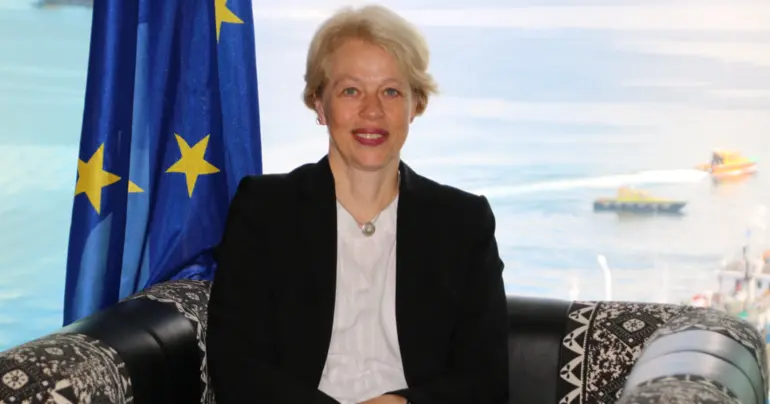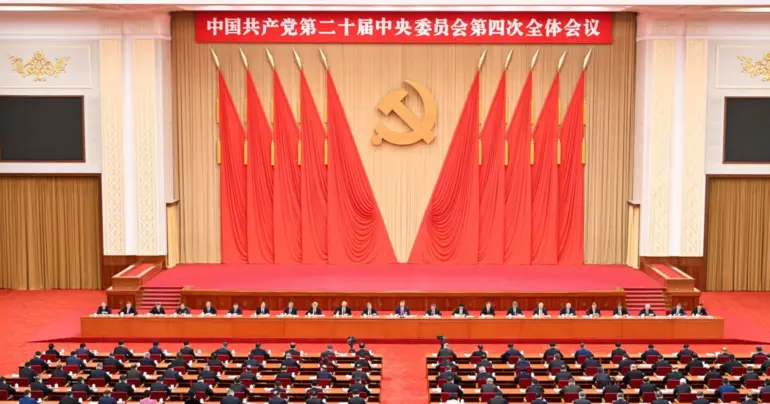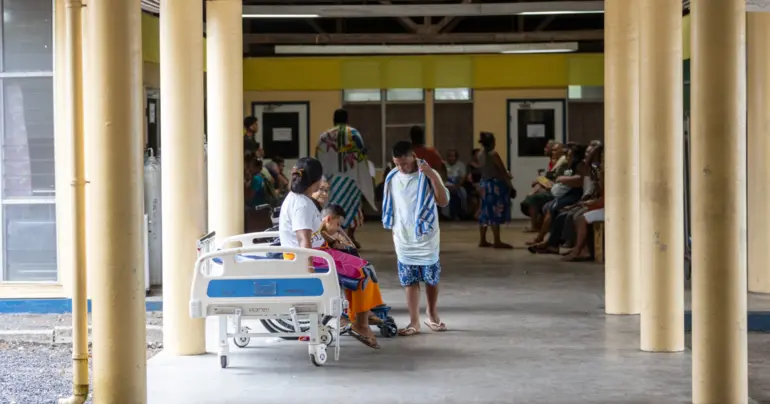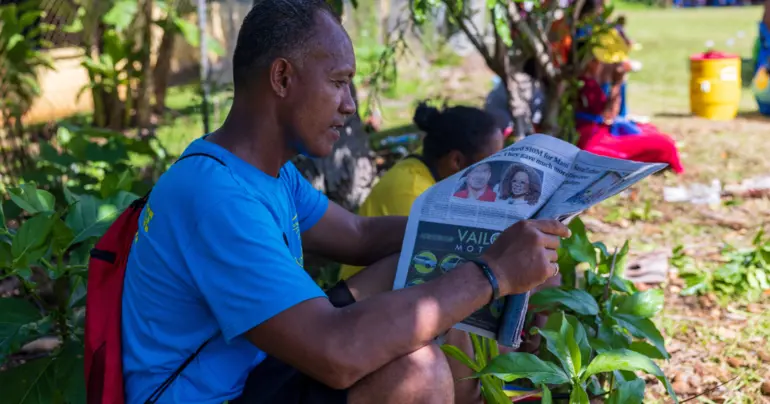IUU fishing: there’s no one-size-fits-all solution
Fisheries are significant renewable resources for Pacific Island, Southeast Asian and Indian Ocean countries. They underpin food supplies and assist economic growth. Illegal, unreported and unregulated fishing (IUU fishing) has a direct social impact and can threaten fish stock sustainability, marine biodiversity, food security, revenue and livelihoods.
Combatting IUU fishing is a top priority across the Indo-Pacific, however, different countries face different challenges. A recent report by the Asia-Pacific Development, Diplomacy & Defence Dialogue (AP4D) looks at how Australia can combat IUU fishing through its development, diplomacy and defence tools. It argues that Australia should focus its attention on the elements that are the highest priorities in each region.
The term “IUU fishing” encompasses a range of issues. It can:
- be a result of artisanal and small-scale subsistence fishers looking for a source of food, income and livelihood;
- involve commercial fishers working in domestic waters and industrialised fishing vessels and distant-water fleets working in the high seas acting outside the legal framework in order to make extra money;
- involve non-reporting, misreporting or under-reporting, and lack of traceability and catch documentation; and
- be a consequence of unsettled maritime boundaries and maritime disputes.
- Each has different drivers requiring different approaches. Because there is not one solution, responses need to be multifaceted.
Pacific Island countries through their membership of the Pacific Islands Forum Fisheries Agency (FFA) and the Pacific Community (SPC) have worked collectively to meet the significant challenges of managing fisheries in their vast maritime zones. The biggest remaining challenge is under-reporting, misreporting or non-reporting by industrialised, foreign large-scale vessels that target tuna resources in members’ exclusive economic zones.
Assistance is needed to not only enhance and strengthen regional mechanisms but support Pacific partners to implement recommendations at the regional and national level, such as implementing the FFA Regional Monitoring, Control and Surveillance Strategy. Interagency cooperation at the country level also remains a challenge. FFA is encouraging police, customs and immigration participation in regional cooperation activities, but further work and support is needed.
Many Association of Southeast Asian Nations (ASEAN) member states also consider combatting IUU fishing a top priority, with countries experiencing over $6 billion in losses each year. However, there remain significant challenges in regional coordination, with ASEAN members not uniformly concerned. IUU fishing in Southeast Asia includes the use of prohibited fishing gear, landing of fish in unauthorised ports, transhipment at sea, and under-reporting, misreporting or non-reporting of catch. Challenges in combatting these include regulatory authorities’ lack of understanding of monitoring control and surveillance, and lack of law enforcement capabilities.
Unresolved maritime boundaries disputes remain an issue. Governments in the region heavily subsidise offshore fishing to exert maritime claims, which exacerbates IUU fishing and causes diplomatic tensions. Measures such as establishing hotlines, memoranda of understanding, exchanging fishery information and sharing experience on addressing IUU fishing could encourage cooperation.
China’s increased fishing efforts in the region have galvanised some ASEAN members to increase cooperation on maritime boundary disputes. Malaysia, Indonesia, Philippines and Vietnam have signed MOUs to strengthen responses to IUU fishing from Chinese fleets, and Indonesia and Vietnam have resolved their long-standing differences about maritime boundaries.
AP4D consultations with 20 non-government experts suggest the priority should be to strengthen existing regional fisheries mechanisms, including the Southeast Asian Fisheries Development Centre and ASEAN Fisheries Consultative Forum. This would provide a mandate for the better management and sustainable development of fish stocks.
Australia is focused on providing capacity-building assistance to deal with these challenges. The differences across the region suggest that Australia needs to tailor its responses to ensure training is driven by country- and regional-level goals.
Australia’s capacity building must also continue to be informed by research to understand the key drivers of IUU fishing and the needs of partners. A capacity needs assessment can be used to inform the design of tailored programs, for example, on beneficial ownership to improve due diligence for coastal countries. A needs-based approach is also required in the area of technology and AI, where provision of technology must meet the needs of recipients in order to not only be effective, but to avoid placing increasing demands on agencies with already limited capacity.
Existing capacity-building programs to build sustainable fisheries management expertise can be replicated and extended. For example, an Australian-accredited monitoring control and surveillance training course currently offered only to Southeast Asia could be extended and tailored to Indian Ocean and Pacific participants, and a Women in Leadership in the Security Sector Short Term Award currently offered to Indonesian government agencies could be extended out to the region.
The Department of Foreign Affairs and Trade could design and invest in a major fisheries and marine conservation program – in Southeast Asia, the Pacific and the Indian Ocean – that brings projects together into a focused investment with greater coherence. There is scope for Australia to use its unique position as a strong partner in regional fisheries management to share lessons from across the region.
Because IUU fishing challenges vary from country to country – whether commercial or small scale, and whether the challenges are in regulation or monitoring – Australia needs to be conscious of the different needs of each partner and ensure this informs the response. Australia should build on its strong record of delivering capacity building with programs that are responsive to the needs of individual countries, aligning assistance with the priorities of partners.











